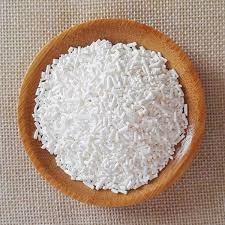
Understanding the Benefits of Phosphorus and Potassium in Fertilizers for Plant Growth
The Importance of Phosphorus and Potassium Fertilizers in Agriculture
Fertilizers play a crucial role in modern agriculture, contributing significantly to crop yield and quality. Among various nutrients required by plants, phosphorus (P) and potassium (K) are essential macronutrients that significantly affect plant growth and development. This article aims to delve into the importance of phosphorus and potassium fertilizers, their functions, and how they enhance agricultural productivity.
Role of Phosphorus in Plant Growth
Phosphorus is a vital nutrient for plants. It is a key component of DNA, RNA, and ATP (adenosine triphosphate), the energy currency of cells. The presence of phosphorus supports various physiological processes, including photosynthesis, respiration, and energy transfer. Phosphorus influences root development, flowering, and fruiting, making it essential for reproductive growth.
Deficiency in phosphorus often leads to stunted growth, poor root development, and delayed maturity. Plants may exhibit dark green or purplish foliage due to the accumulation of anthocyanins when phosphorus is deficient. This not only affects crop yield but also reduces quality, necessitating the application of phosphorus fertilizers to rectify deficiencies.
Phosphorus fertilizers come in various forms, including monoammonium phosphate (MAP), diammonium phosphate (DAP), and superphosphate. Farmers must conduct soil tests to determine phosphorus levels before application to ensure appropriate rates and timing, as excessive phosphorus can lead to environmental issues such as water pollution.
Importance of Potassium for Crop Health
Like phosphorus, potassium is indispensable for optimal plant growth. It plays a critical role in numerous biochemical and physiological processes. Potassium is involved in the regulation of stomatal opening, which controls water loss and gas exchange in plants. This function is crucial, especially in periods of drought.
Additionally, potassium strengthens plants’ resistance to diseases and enhances their ability to cope with environmental stresses, such as extreme temperatures and drought. It contributes to the overall vigor of the plant, promoting healthy growth and improving grain filling in cereal crops.
phosphorus and potassium fertilizer

When potassium is deficient, plants may show symptoms such as yellowing of leaf edges, increased susceptibility to pests and diseases, and reduced root systems. The application of potassium fertilizers can help mitigate these issues, ensuring robust and resilient crops.
Balanced Fertilization for Optimal Results
Achieving the right balance of phosphorus and potassium is vital for sustainable agricultural practices. A balanced fertilizer program enhances soil fertility and maximizes crop yields. While phosphorus and potassium are essential, they must be applied in conjunction with other nutrients, such as nitrogen, calcium, and magnesium, to ensure comprehensive nourishment.
The combination of these nutrients can significantly enhance crop productivity. For instance, the synergistic effects of nitrogen, phosphorus, and potassium lead to better flowering and fruiting stages in many crops. Therefore, it is crucial for farmers to adopt a holistic approach to fertilization, considering the specific requirements of their crops and the conditions of their soils.
Environmental Considerations
While phosphorus and potassium fertilizers are vital for high-yield agriculture, their application must be managed ethically and responsibly. Over-application can lead to nutrient runoff into waterways, causing eutrophication, which negatively impacts aquatic ecosystems. Thus, farmers should engage in best management practices (BMPs) to minimize environmental impact while maximizing crop output.
Utilizing soil testing, precision agriculture technologies, and the application of organic matter can help maintain appropriate nutrient levels in soils. Innovations such as slow-release fertilizers and controlled-release fertilizers are also being explored to enhance nutrient use efficiency and reduce the risk of leaching.
Conclusion
Phosphorus and potassium fertilizers are indispensable for enhancing agricultural productivity and ensuring food security. They support critical biological functions in plants, facilitating robust growth and resilience against environmental stresses. However, it is essential to apply these fertilizers responsibly, considering environmental impacts. By balancing nutrient applications and employing sustainable practices, farmers can cultivate healthy crops while preserving the integrity of our ecosystems. As we seek to meet the increasing global food demand, the responsible use of phosphorus and potassium fertilizers will continue to play a pivotal role in sustainable agriculture.
-
Understanding Synthetic Rubber OptionsNewsApr.27,2025
-
Trichloroisocyanuric Acid: Essential for Clean and Safe WaterNewsApr.27,2025
-
Sodium Dichloroisocyanurate: Key to Safe Water TreatmentNewsApr.27,2025
-
Sodium Acid Pyrophosphate: Essential in Modern Food ProcessingNewsApr.27,2025
-
Essential Water Treatment ChemicalsNewsApr.27,2025
-
Denatured Alcohol and Its Industrial UsesNewsApr.27,2025
-
The Versatile Uses of Sodium BicarbonateNewsApr.24,2025
Hebei Tenger Chemical Technology Co., Ltd. focuses on the chemical industry and is committed to the export service of chemical raw materials.
-

view more DiethanolisopropanolamineIn the ever-growing field of chemical solutions, diethanolisopropanolamine (DEIPA) stands out as a versatile and important compound. Due to its unique chemical structure and properties, DEIPA is of interest to various industries including construction, personal care, and agriculture. -

view more TriisopropanolamineTriisopropanolamine (TIPA) alkanol amine substance, is a kind of alcohol amine compound with amino and alcohol hydroxyl, and because of its molecules contains both amino and hydroxyl. -

view more Tetramethyl Thiuram DisulfideTetramethyl thiuram disulfide, also known as TMTD, is a white to light-yellow powder with a distinct sulfur-like odor. It is soluble in organic solvents such as benzene, acetone, and ethyl acetate, making it highly versatile for use in different formulations. TMTD is known for its excellent vulcanization acceleration properties, which makes it a key ingredient in the production of rubber products. Additionally, it acts as an effective fungicide and bactericide, making it valuable in agricultural applications. Its high purity and stability ensure consistent performance, making it a preferred choice for manufacturers across various industries.











